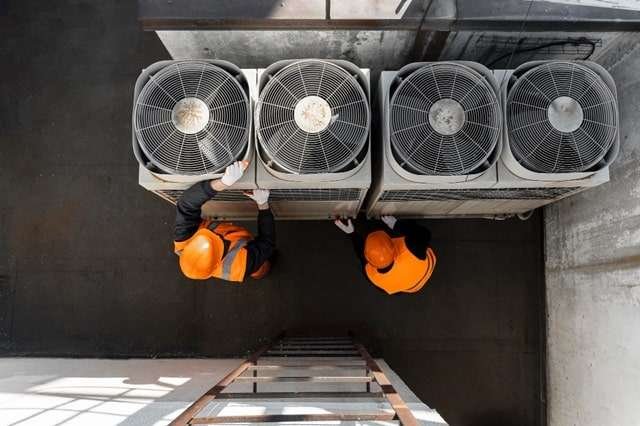As the temperatures fall, it is time to prepare your home for the winter. Landlords and tenants should clarify responsibilities for maintenance to avoid costly HVAC repairs.
A well-maintained HVAC system is more energy efficient. It is less likely to break down and requires fewer repairs. Follow these seasonal maintenance tips to reduce utility bills and extend the life of your system.
Seal Any Drafts
While we all love a breeze on a warm day, drafts can make your home uncomfortable and cause your HVAC system to work harder to keep the house at the desired temperature. It’s easy to fix drafty areas by sealing gaps and cracks.
The best time to check for leaks is on a windy day. Shut all doors, windows, and flues. Light a stick of incense and hold it around the edges of common drafty areas to see if the smoke moves in a way that suggests air is coming through.
Gaps and cracks in the windows, door frames, and electrical outlets can also let cold air into your home. Seal them by using gap fillers like backer rods or foam strips. You can also add door sweeps or a neoprene door snake.
Clean the Outside Unit
A dirty air conditioner coil decreases efficiency, so cleaning your outdoor unit each fall is essential. Start by switching off the power, usually an electrical disconnect near the unit or a switch on an exterior wall.
Wear gloves to remove large pieces of debris, then vacuum the condenser fins using a soft brush attachment. A water hose spray can also be used to rinse away dirt and debris from the fins. Be careful not to bend the fins.
To guarantee the optimal performance and safety of the unit, it is imperative to maintain a clear space of a minimum of three feet around it and to remove any debris that may have accumulated promptly.
Finally, spray the outside unit with coil cleaner. It will foam up after about 15 minutes and bond with the dirt in the coils, helping them to be cleaned more effectively.
Clean the Ductwork
Cleaning your ductwork helps prevent dust, dirt, and allergens from circulating throughout the house. These pollutants can aggravate allergies, asthma, and other respiratory conditions. Moisture trapped in air ducts can lead to mold, which releases mold spores into the home. Changing your air filter regularly is essential to keep your ducts clean.
Now is the perfect time to inspect your ductwork as winter draws near. Before turning on the furnace, your ductwork needs to be cleaned. A dirty duct can make your HVAC system work harder, which raises energy costs and utility bills. Having your ductwork cleaned by a professional HVAC maintenance Delaware company is best.
Schedule a Tune-Up
When an HVAC system runs constantly, it stresses mechanical components and controls. Seasonal maintenance ensures that these minor issues are identified and repaired, saving you money on expensive repairs in the future.
Some of the work done during a tune-up includes renewing refrigerant, inspecting electrical systems and connections, checking the blowers and fans, cleaning the coils, and lubricating the motor. It is essential to ask your technician for a clear list of what will be done during the service and how much it will cost.
Regular maintenance of your cooling and heating equipment will help you save money in the long run, make your equipment last longer, and ensure that the air quality in your home remains high, thereby protecting your family’s health.
Schedule a Repair
Your HVAC system is one of your most expensive equipment, so keeping it in good working condition will help you avoid costly repairs. That is why it is essential to do the basics, like cleaning or replacing air filters and checking carbon monoxide detectors.
Consider enrolling in an HVAC company’s maintenance plan, which includes two technician visits and potential discounts on repair services!
Seasonal maintenance will catch minor issues before they become more significant problems, saving you money on energy bills and extending the life of your heating or cooling equipment. Contact a local HVAC service provider to learn more about establishing a maintenance schedule that works for your home.









